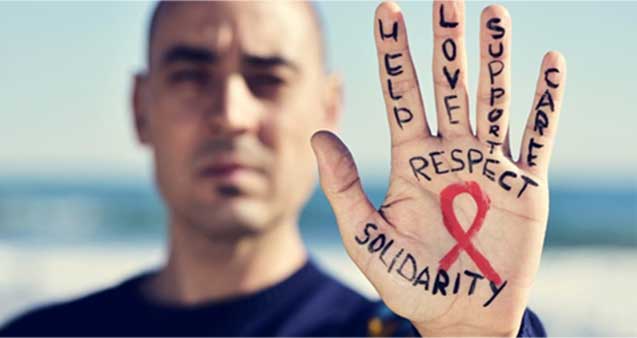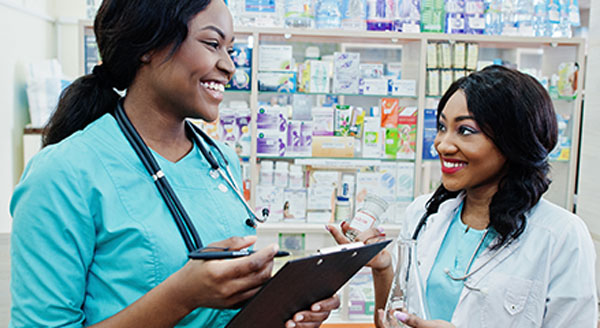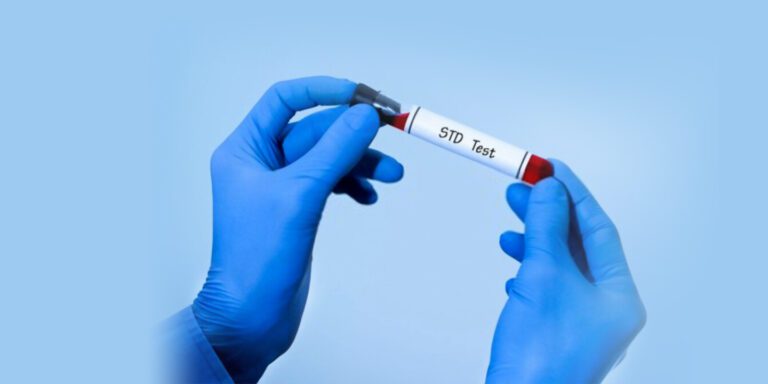Emerging Threats: The Rise of Drug-Resistant STDs
Sexually transmitted diseases (STDs) have been a long-standing concern for public health. However, in recent years, a new and alarming trend has begun to emerge: drug-resistant STDs. This growing problem is making it harder for doctors to treat common infections, leading to more complications for patients. The rise of drug-resistant STDs is a pressing issue that could affect anyone, making early detection and effective treatment more important than ever.
What Are Drug-Resistant STDs?
Drug-resistant STDs occur when the bacteria or viruses responsible for the infection no longer respond to the medications typically used to treat them. This resistance develops over time, often due to overuse or improper use of antibiotics and antiviral medications. As a result, patients may experience longer or more severe illnesses, and doctors may struggle to find effective treatment options.
The Most Common Drug-Resistant STDs
Several STDs have developed resistance to treatment, with some of the most concerning being:
Gonorrhea
Gonorrhea is one of the most common STDs, and in recent years, its resistance to antibiotics has become a significant concern. This infection is caused by the Neisseria gonorrhoeae bacterium. In some cases, it no longer responds to traditional antibiotics like penicillin or tetracycline. Health organizations are now pushing for more targeted treatments and better screening methods to combat this growing threat.
Chlamydia
Chlamydia is another common STD that has begun showing signs of resistance, although it is not as widespread as gonorrhea. This infection is caused by the Chlamydia trachomatis bacterium, which typically responds well to antibiotics like azithromycin or doxycycline. However, in some cases, drug resistance is developing, making it harder to treat effectively.
Syphilis
Syphilis, caused by the bacterium Treponema pallidum, has largely remained treatable with penicillin. However, there have been growing concerns about the potential for resistance to this antibiotic in some regions. While this issue is not yet widespread, health officials are keeping a close eye on the situation to prevent further complications.
Also Learn About: The Role of Meditation and Stress Management in STD Management
Why Are Drug-Resistant STDs Becoming More Common?
The rise of drug-resistant STDs can be attributed to a few key factors. These include the overuse and misuse of antibiotics, poor access to healthcare in some areas, and the lack of proper treatment in some cases. Here’s a deeper look into these causes:
Overuse of Antibiotics
One of the primary reasons for drug resistance is the overuse of antibiotics. People often take antibiotics when they aren’t needed, such as for viral infections like the common cold. When antibiotics are used inappropriately, bacteria can develop resistance over time. In the case of STDs, this resistance can make infections more complicated to treat.
Incomplete Treatment
Sometimes, patients don’t finish their full course of antibiotics. When this happens, the bacteria can survive and adapt, making them develop resistance to the medications used to treat them. This means that the standard antibiotics or antiviral treatments no longer work effectively, making the infection harder to cure. Drug resistance is a natural process, but it has been accelerated by overuse and misuse of antibiotics, which is common in the treatment of bacterial STDs like gonorrhea and chlamydia.
While some drug-resistant strains of STDs are still rare, they are on the rise and pose a serious threat to public health. If left unchecked, this trend could lead to a future where even the most common STDs become harder to treat, putting millions of people at risk.
The Role of Testing and Prevention
With the rise of drug-resistant STDs, regular testing and early detection have never been more important. Many STDs, including drug-resistant ones, often don’t show symptoms right away, which means that individuals may unknowingly spread the infection.
Regular Screenings Are Key
Getting tested regularly for STDs is the best way to detect infections early before they become more severe or develop drug resistance. For those in Jacksonville or surrounding areas, visiting an STD Clinic in Jacksonville is an excellent way to get tested and receive guidance on the best ways to protect yourself from STDs. Hope Across The Globe encourages everyone to make STD testing part of their routine healthcare, particularly if they have multiple sexual partners or are at higher risk.
Safe Sexual Practices
Preventing the spread of drug-resistant STDs starts with practicing safe sex. Using condoms or dental dams during sexual activities reduces the risk of contracting or transmitting STDs, including drug-resistant strains. It’s important to remember that while condoms are highly effective, no method is perfect, so it’s essential to be proactive about other preventive measures as well.
In addition to using condoms or dental dams, being open and honest with sexual partners about sexual health is crucial. Mutual understanding and regular communication can reduce the chances of spreading STDs. Furthermore, limiting the number of sexual partners can lower the risk of exposure to infections, including drug-resistant strains.
For those in relationships or considering new sexual partnerships, having a conversation about testing and sexual health history can go a long way in protecting both parties. Understanding each other’s health status and practicing safe sex can reduce the chances of contracting STDs.
What You Can Do to Prevent the Spread of Drug-Resistant STDs
1. Get Tested Regularly
Routine testing is the most effective way to catch STDs early and prevent them from spreading. In Jacksonville, you can visit an STD Clinic in Jacksonville to get tested and receive proper treatment promptly. Regular checkups also ensure that any potential drug-resistant strains are detected and addressed before they become more challenging to treat.
2. Take Full Course of Medication
If you are diagnosed with an STD, it’s essential to take the full course of prescribed medication, even if you begin feeling better before completing it. Stopping treatment early can allow the bacteria or virus to survive and adapt, leading to drug resistance. Always follow your doctor’s instructions for the best possible outcome.
3. Practice Safe Sex
Consistently using protection during sexual activity helps prevent the transmission of STDs. Condoms and dental dams are effective barriers against most sexually transmitted infections, including those that may be resistant to treatment.
4. Seek Medical Advice for Any Symptoms
If you suspect that you may have been exposed to an STD or are experiencing symptoms, don’t delay seeking medical care. Early treatment is crucial for preventing complications and reducing the risk of resistance. Symptoms of STDs, such as unusual discharge, painful urination, sores, or rashes, should never be ignored. Seek prompt medical attention to ensure proper diagnosis and treatment.
Hope Across The Globe’s Commitment to Combating Drug-Resistant STDs
At Hope Across The Globe, we are more than just an organization providing medical support. We are deeply invested in educating our communities about the risks associated with drug-resistant STDs and helping to prevent their spread. Our goal is to not only treat individuals but also empower them with the knowledge to make informed decisions regarding their sexual health.
Also Learn About: The Role of Meditation and Stress Management in STD Management
Collaborating with Local Healthcare Providers
Hope Across The Globe works closely with healthcare providers to ensure that everyone has access to the most up-to-date information and treatment protocols. By collaborating with doctors, clinics, and public health organizations, we aim to create a network of support that addresses the issue of drug-resistant STDs from multiple angles.
Advocacy for Better Access to Healthcare
We are also advocating for improved access to healthcare, particularly in underserved areas, where the risk of drug-resistant STDs can be higher due to a lack of resources or awareness. By partnering with local organizations, we strive to make regular testing, education, and treatment more accessible to people from all walks of life.
Community Outreach and Education
Hope Across The Globe is committed to outreach programs designed to raise awareness about the dangers of drug-resistant STDs. Through workshops, seminars, and social media campaigns, we provide resources on prevention, safe sexual practices, and the importance of completing prescribed treatments. These initiatives help to reduce stigma and foster a culture of open communication about sexual health.
We also focus on educating young people, as they are particularly vulnerable to STDs. By starting the conversation early and offering education on the importance of safe sex and regular testing, we aim to create a generation that is informed and proactive about their health.
Providing Support for Those Affected
Beyond prevention and education, Hope Across The Globe also offers ongoing support to individuals who have been diagnosed with STDs, including those with drug-resistant strains. We provide counseling, guidance on treatment options, and resources to help individuals navigate their journey toward better health. Our goal is to ensure that no one feels alone in dealing with the challenges of an STD diagnosis.
Conclusion: A Collaborative Effort to Combat Drug-Resistant STDs
The rise of drug-resistant STDs is a serious public health challenge, but through collaborative efforts, education, and accessible healthcare, it is possible to slow the spread of these infections. Hope Across The Globe remains committed to ensuring that individuals and communities have the tools they need to protect themselves and their loved ones.
By focusing on prevention, safe practices, regular testing, and responsible antibiotic use, we can all contribute to reducing the threat posed by drug-resistant STDs. If you’re in Jacksonville or the surrounding areas, consider visiting an STD Clinic in Jacksonville for testing, treatment, and advice.
Related Tag: Free STD Testing Jacksonville






